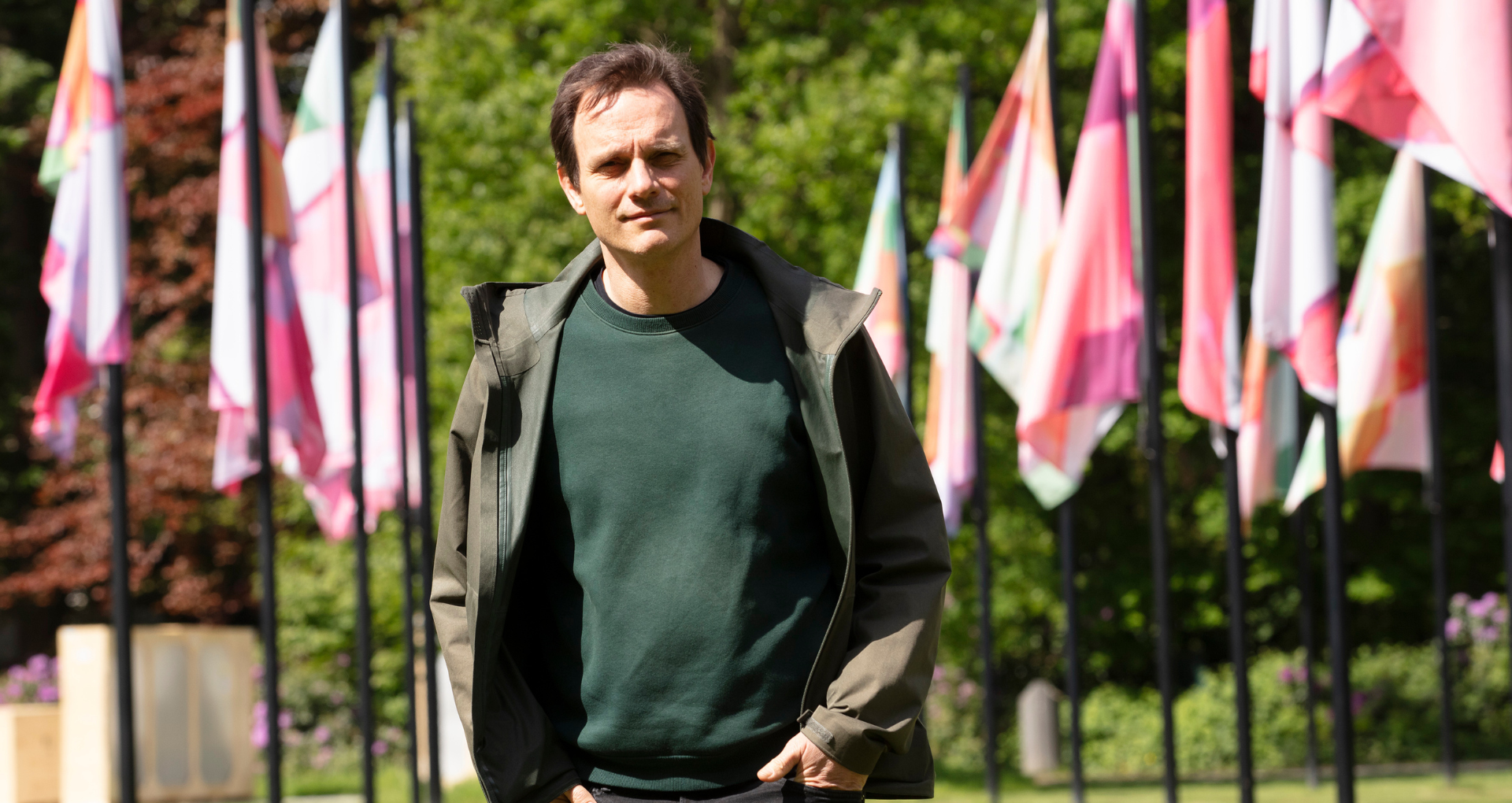At UAntwerp, we believe that health isn’t a sprint – it’s a choice you make every day. Exercising doesn’t need to be intense or time-consuming to enhance your well-being. From active commuting to short walking breaks, from running in the park to taking the stairs at work – every step counts. Colleagues share their experiences, tips and small habits that bring more energy, focus and balance to their workdays. Be inspired by how they stay active – both literally and figuratively.
‘Exercising is essential, but interrupting prolonged sitting is just as crucial for your health,’ says Gaetane Stassijns, full professor at the Faculty of Medicine and Health Sciences and head of Physical Medicine at UZA. ‘Stand while making phone calls, take the stairs or walk during a meeting. These simple habits boost your circulation and keep your body active – even at the office.’
The World Health Organization’s recommendations are very achievable: about 150 to 300 minutes of moderately intense activity per week – such as cycling to work – or 75 to 150 minutes of vigorous activity, like jogging. That’s an average of 20 minutes per day – enough to make a visible difference to your health.
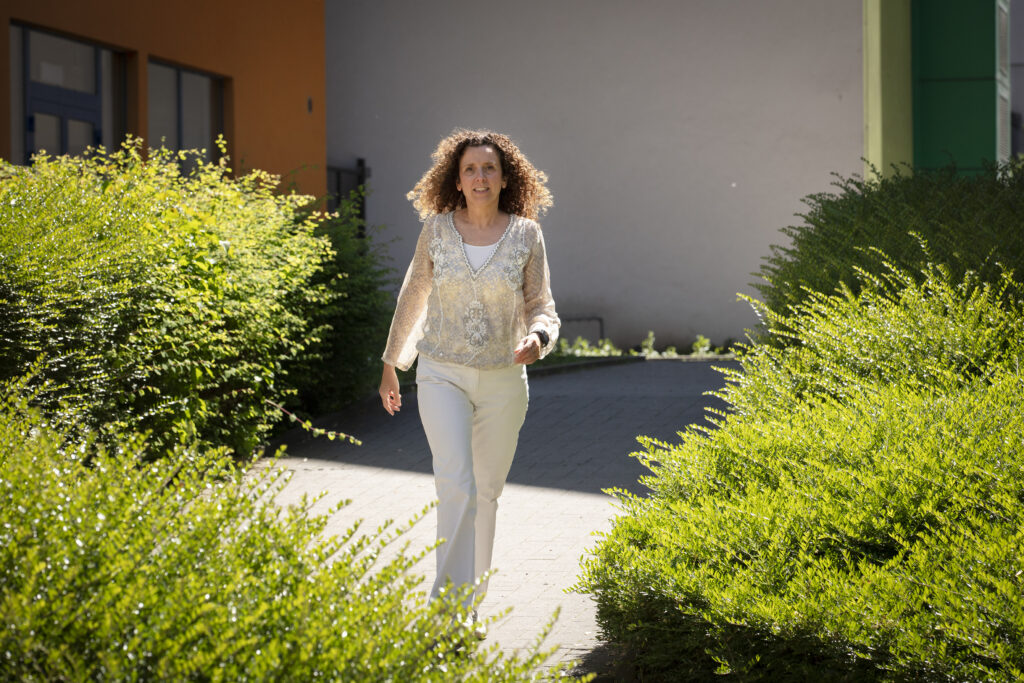
‘Even just 10 minutes of exercising a day can help reduce chronic inflammation in the body,’ Stassijns explains. ‘Exercising activates repair mechanisms, counters the harmful effects of inflammatory substances produced in abdominal (and other) fat, and strengthens your resilience against disease over time.’
‘Not all exercises have the same effect: for strong bones, weight-bearing activities like walking are ideal, while for osteoarthritis, low-impact options like swimming are better.’
And what about the mental aspect? That’s equally important. ‘Exercising reduces the production of stress hormones like cortisol,’ Stassijns says. ‘It also stimulates neurotransmitters such as serotonin and endorphins, which positively affect your mood and can even reduce depressive feelings. Exercising outdoors, in nature, enhances this effect.’
In short: exercising doesn’t have to be intense or time-consuming to make a difference. Small, conscious habits get both the body and the mind into gear.
Bike, train or on foot: active commuting
Many colleagues choose to commute actively. Joëlle D’hondt (communication office manager, Institute of Development Policy – IOB) tells us: ‘I cycle about 32 kilometres to and from work three times a week. Cycling helps me to start the workday feeling refreshed and to mentally unwind in the evening. Even on colder or rainy days, I don’t let myself be discouraged. On those days, I cycle to Kruibeke and take the water bus from there. That way, I still get my share of exercising – and a relaxing boat ride as a bonus.’
Kurt Apers (staff member, Infrastructure Department) was the very first to sign up for an e-bike lease.
‘Unfortunately, my previous bike was stolen on campus – my own fault, I hadn’t locked it – so the lease option came at just the right moment. In daily life, I don’t always have the time or motivation to play sports. But by cycling to work I get some exercise at least. On the way, I enjoy the fresh air and listen to podcasts I’d otherwise never get around to. The lease bike comes with a nice tax advantage, but whether it’s right for you depends on your situation. Having said that, I would definitely recommend cycling to work to anyone.’
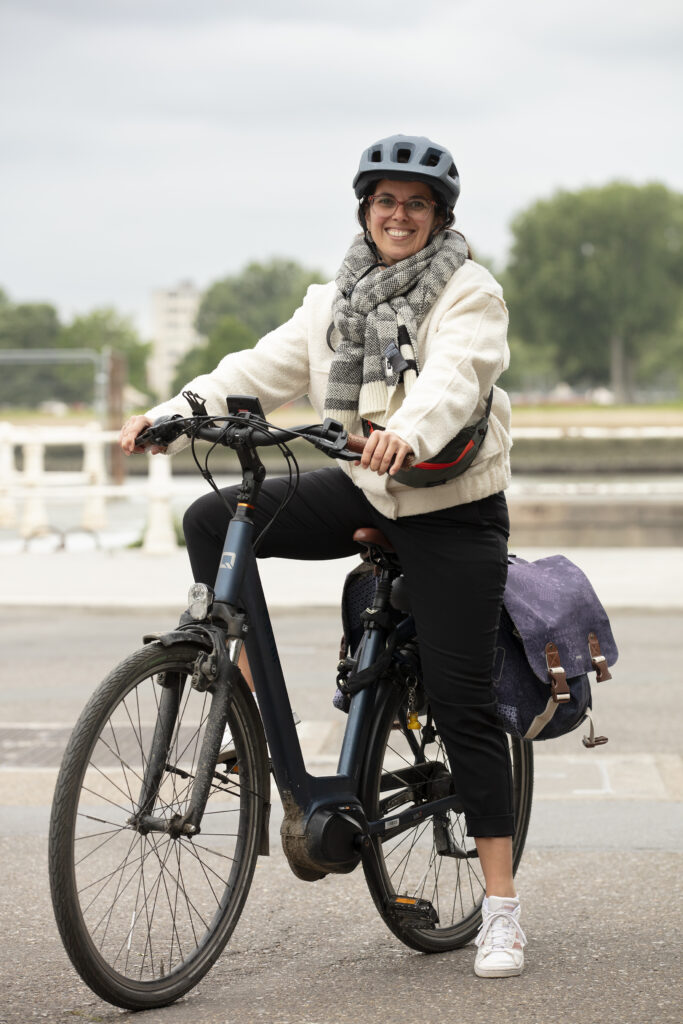
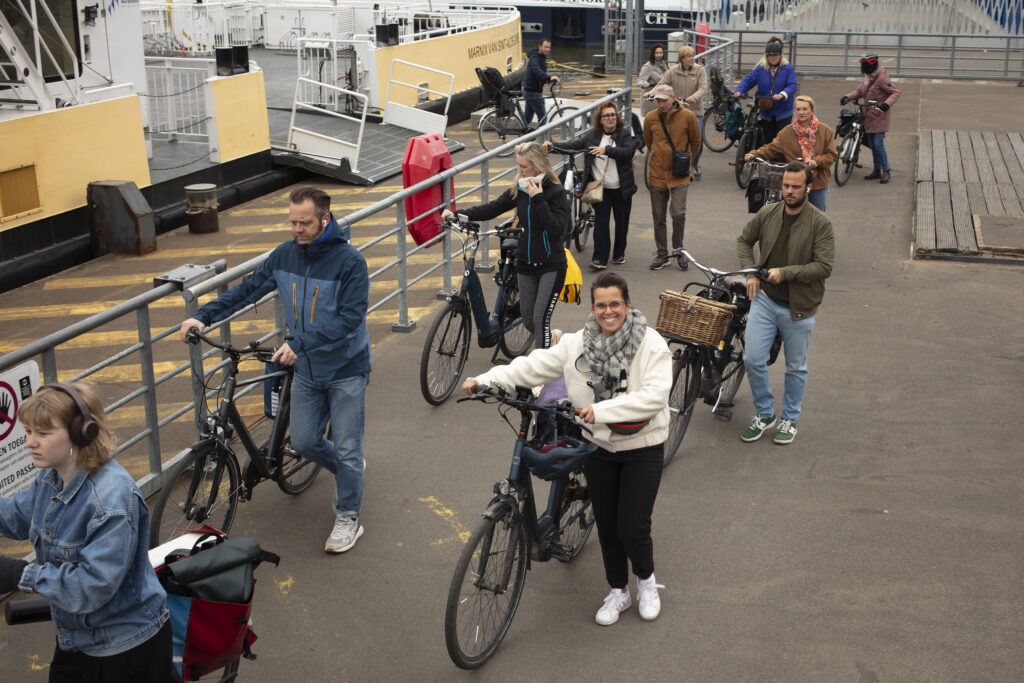
Folding bike between campuses
Filip Verplancke (staff member, komida) commutes by train from Geel on a daily basis and uses a folding bike to travel between the different campuses. ‘It’s not only efficient but also the fastest and most sustainable option in the city – something we value both at the university and at komida. After a few unpleasant experiences involving vandalism and theft, I switched to a folding bike three years ago. Staying active helps me maintain both a mental and a physical balance. While cycling, I often take a moment to reflect on the day.’
The combination of train and folding bike is a conscious choice for professor Vera Meynen (full professor, Department of Chemistry). ’It’s flexible, efficient, and sporty and sustainable at the same time. I avoid traffic jams, get some exercise and can get some work done on the train – something that’s impossible by car. I switched to a folding bike after several frustrating experiences with leaving a regular bike at the station. Now, I decide where to get off based on what saves time. And when I have meetings in Brussels or Ghent, I avoid slow tram rides – with the folding bike, I’m often faster and more active. After twenty minutes of cycling, I feel refreshed and mentally ready for the day. It also helps me maintain my sporty side. And yes, I love chocolate, so burning a few extra calories along the way is a nice bonus (laughs).’
Biking and walking improves your fitness
Ivan Verhaert (associate professor, Department of Electromechanics): ‘For years now, the combination of train and folding bike has been the most efficient way for me to commute to work. It’s flexible, practical and sustainable. I get work done on the train and cycle the last stretch on my own – which gives me a sense of freedom. I’ve noticed my fitness has improved, and I’m more productive than after a car ride. And yes, even when the train fails me, the folding bike gives me options: I can always hitch a ride with a colleague and just pop the bike in the boot! One tip: invest in a good folding bike with a hub dynamo – it really makes a difference.’
Mohamed El Arif (staff member, Health and Safety Department) walks from the station to the CMI building every day: ‘It’s not far, but it’s a built-in period of exercising. I avoid escalators and choose the stairs on purpose. Sometimes I daydream or admire the buildings on the way. It took a while, but I’ve really noticed a difference in my fitness. Apart from this walk, I don’t do any other sport, but this daily ritual does enough to keep me feeling balanced.’
Jan Dries (project manager, Lifelong Learning) traded in his car for a racing bike: ’The daily traffic from Zoersel was so stressful that I switched to cycling. It took some prep – good rain gear, lights – but now there are only upsides. No more stress about when I’ll arrive, and my fitness has greatly improved. I take a quiet route along the Albert Canal: mindfulness on two wheels. And cycling turned out to be surprisingly social – I meet colleagues and even the rector at the bike racks.’
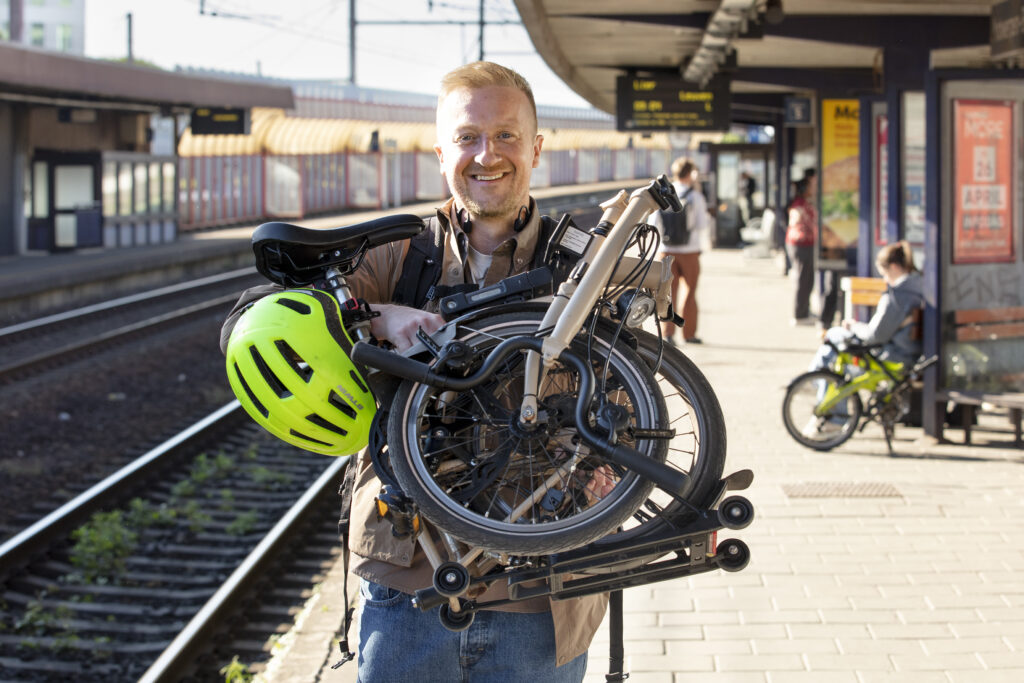
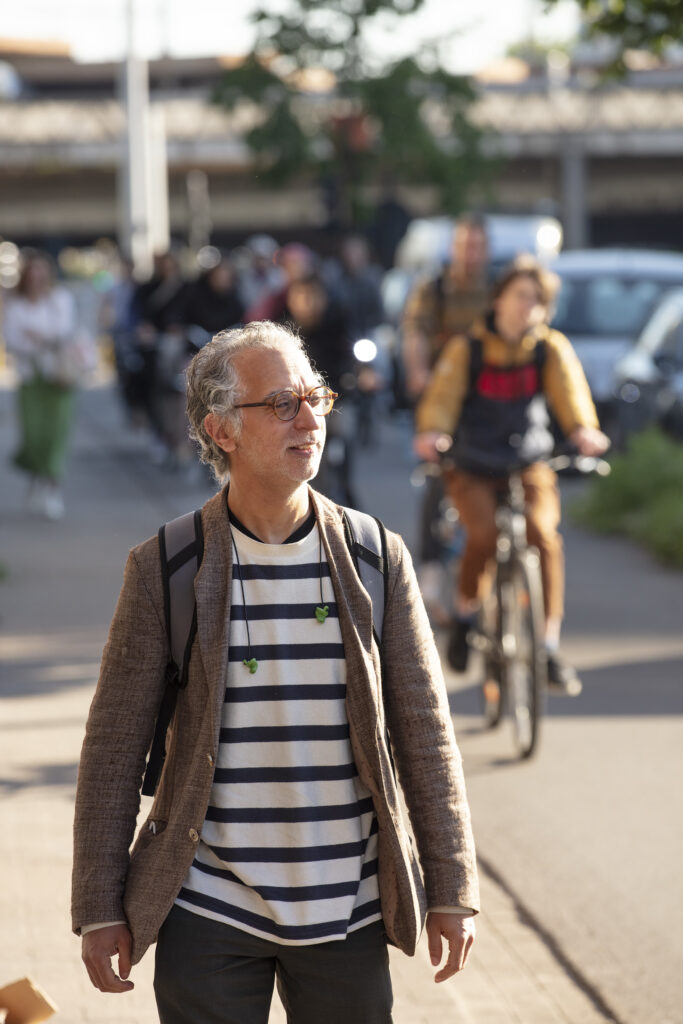
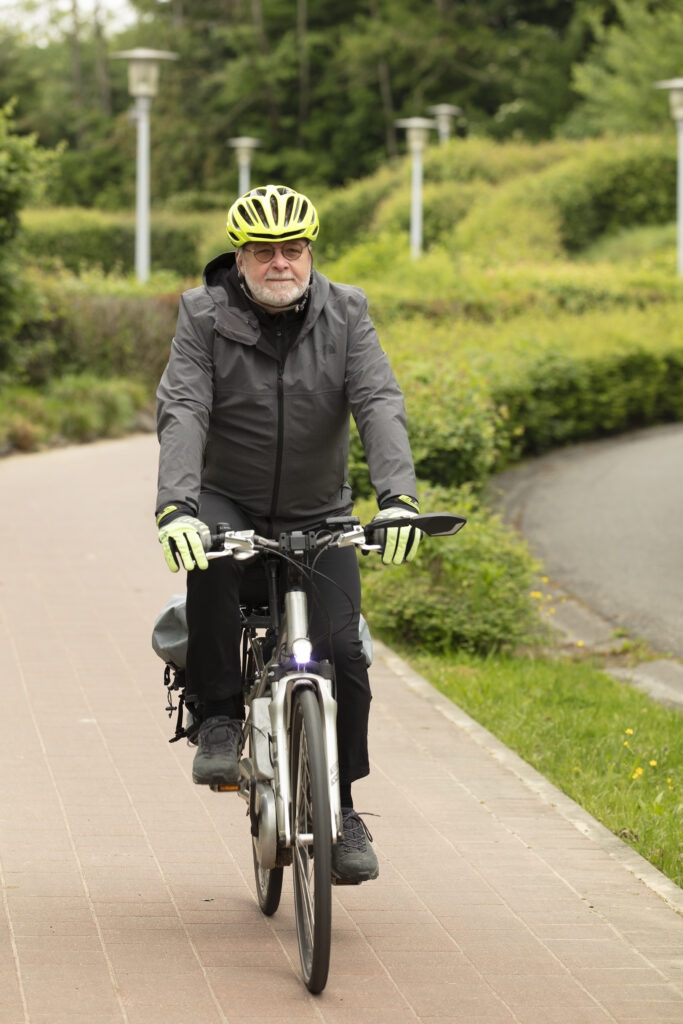
Exercising during the workday
Exercising doesn’t stop when you enter the building. Peter Roef (staff member, Health and Safety Department) enjoys walking during lunch breaks: ‘Even if your workspace is well-ventilated and has plenty of light, you still notice how much of a difference some extra exercising, fresh air and daylight can make. A short lunch-time walk in het Middelheim sculpture park gives me more energy, helps me concentrate better and reduces stress. I aim for an active lifestyle: I cycle to work, reduce my sitting time and walk every day. Not to reach athletic goals, but simply to feel good – both physically and mentally.’
A quick midday run really makes a difference.
Elio Berardocco (Purchasing Department) shares: ‘What started with a Start to Run program eventually led to running the 10 Miles. Since then, I’ve noticed how much fitter and more energetic I feel by exercising regularly. During lunch, I like to go for a run from the CMI building – Nachtegalenpark is close by. It’s healthy and a great way to catch up with colleagues and get rid of work stress. I also cycle to work every day and go snowboarding in the winter. For me, exercising is essential.’
Werner Jacobs (CFO, Finance Department) explains: ‘Exercising helps me stay physically fit – especially since I play competitive badminton – but it’s mostly a mental break for me. My schedule is often packed, and exercising gives me the chance to clear my head. Due to an Achilles tendon injury, I alternate running with rowing on my machine. I also play tennis and badminton weekly, as well as regular rounds of golf. My biggest passion remains skiing, even if I can only do that a few times a year.’
Cindy De Moor (secretary-coordinator, ICT) says: ‘Exercising with colleagues breaks up the daily routine and strengthens team spirit. During our training for the 10 Miles, we really grew closer. Crossing the finish line together is something you don’t forget. Running in a group is motivating – even in the rain. It gives me energy and a peaceful, zen feeling. I also do yoga and a detox cleanse in spring and autumn. The result: more balance, more energy.’
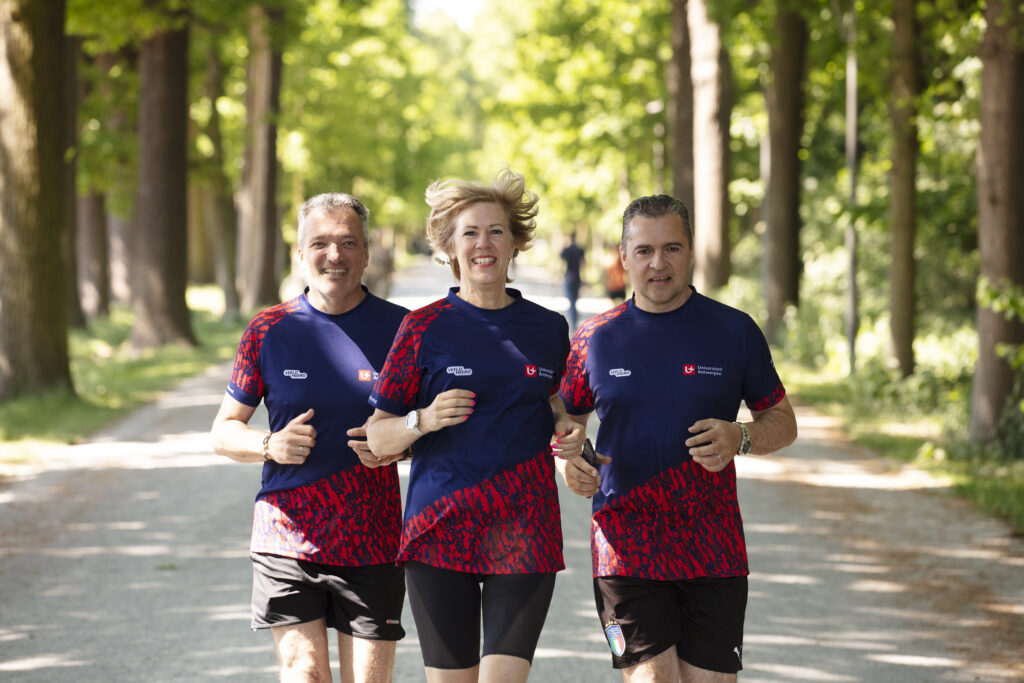
Small habits, big difference
Any type of physical activity counts. At ICT Bregt Slootmaekers makes a habit of walking around the building and taking the stairs. ‘For over 20 years, I’ve had to watch my lower back after a hernia caused by too much sitting and stress. Now, I try to get up every hour for a short walk, often to get water. My smartwatch keeps me on track. Running in Middelheim Park is great for both my back and my mind. And cycling to work each day gets me moving before I even reach my desk.’
Sometimes, exercising comes from a habit passed down by colleagues. Many still fondly remember how Rita Mahieu, now retired, encouraged others to fetch coffee or tea together – not just to stretch their legs, but also to ‘let their minds wander’. That small tradition still lives on amongst many today.
Tim Engels (head of department, RIVA) opts for variety: he alternates between sitting and standing at his desk – a small change that makes a big difference for his body. ‘By switching it up, I feel fresher and more energized throughout the day. Meetings already involve a lot of sitting, so standing while working gives me some much-needed variety. Exercising is part of my daily routine anyway. I run several times a week in the early morning, I cycle to work and I practice karate. For me, life is like riding a bike: you have to keep moving to stay balanced.’
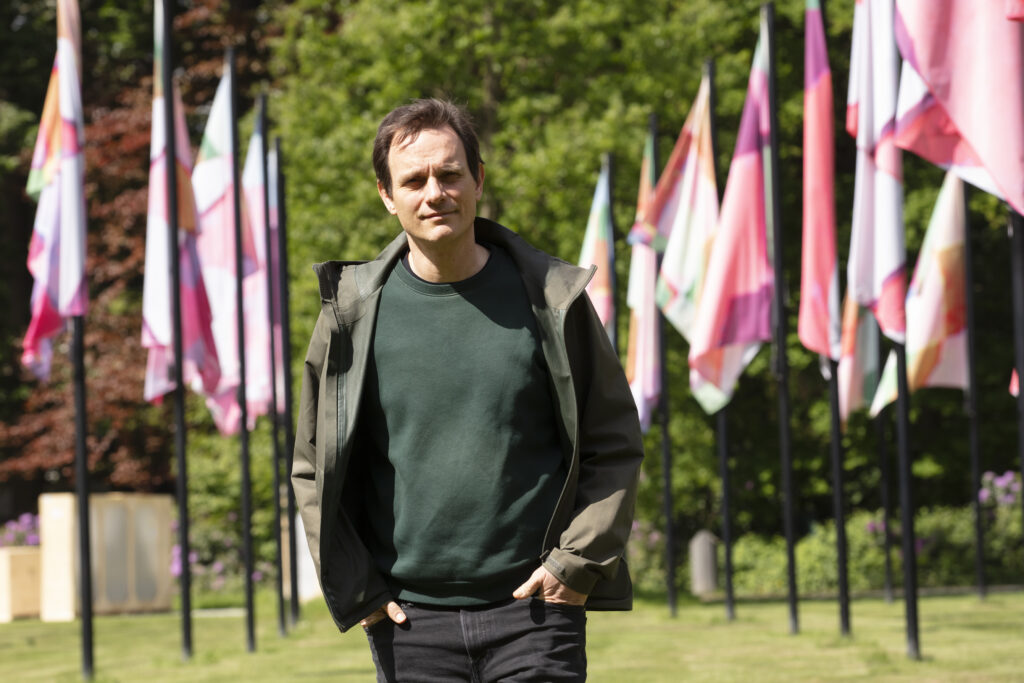
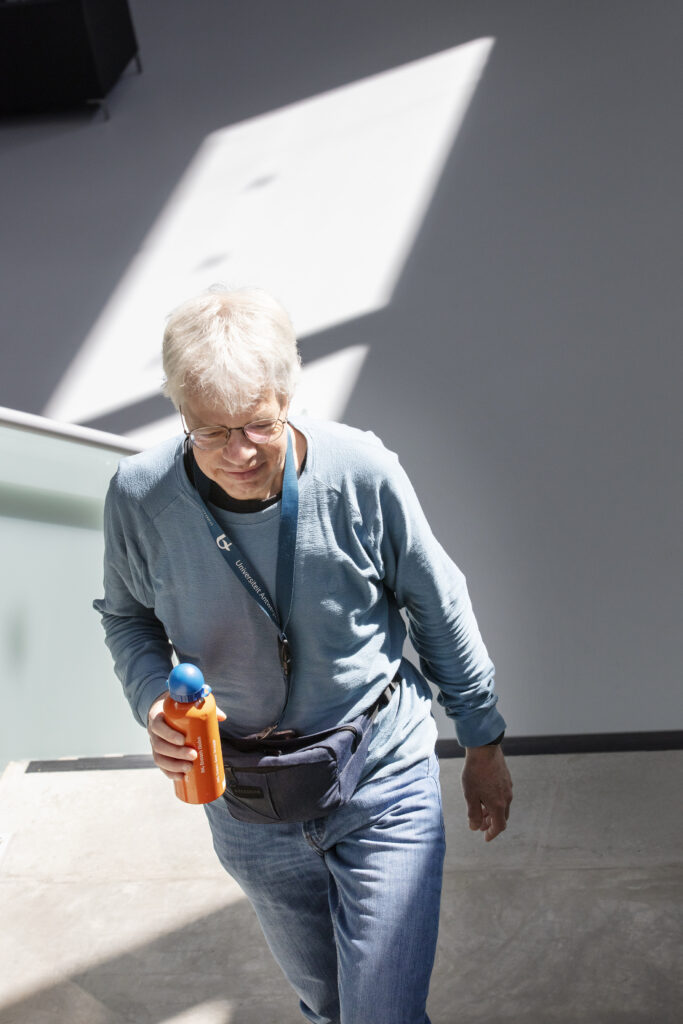
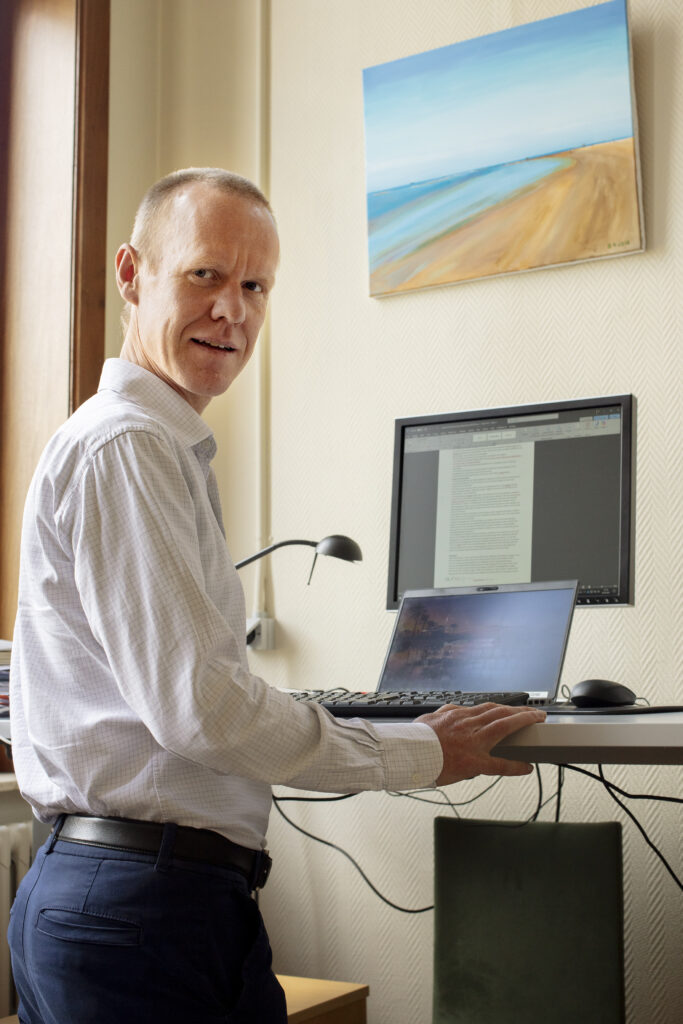
Exercising together
Exercising isn’t just a personal responsibility – it’s also about connection. Walking together, motivating one another or heading to the coffee machine as a group strengthens our bonds.
At UAntwerp, a small but growing movement is emerging – one that centres on well-being, vitality and connection. Because health lives in the small choices we make every day. And together, we make that step – day by day.
How will you start exercising today?
Take a moment to reflect on your daily routine. What can you do – today or tomorrow – to add a bit more exercise to your day? Whether it’s a short walk between meetings, working while standing or cycling to campus – every step matters. Let yourself be inspired by small actions that, over time, can make a big difference to your well-being.


